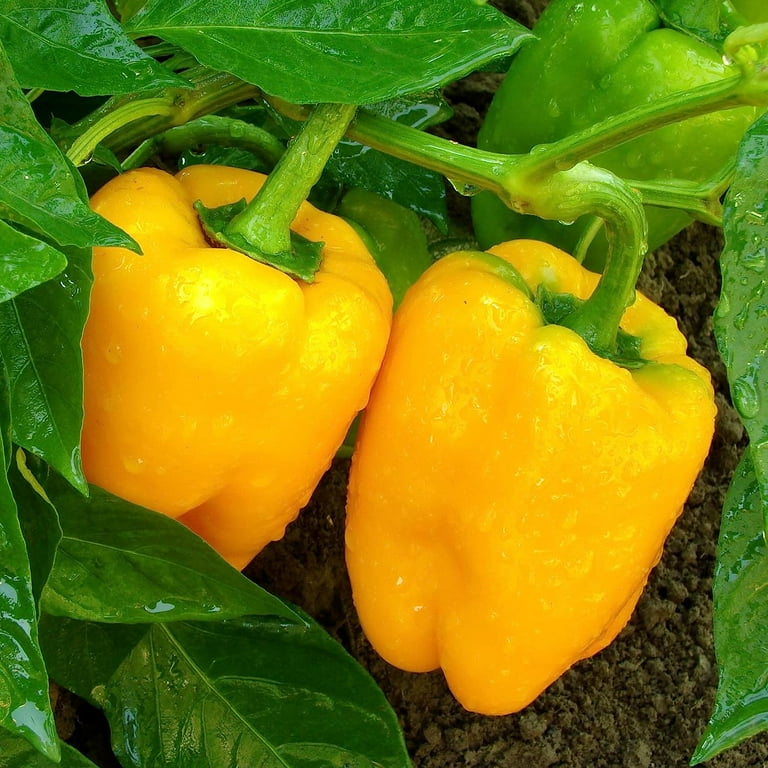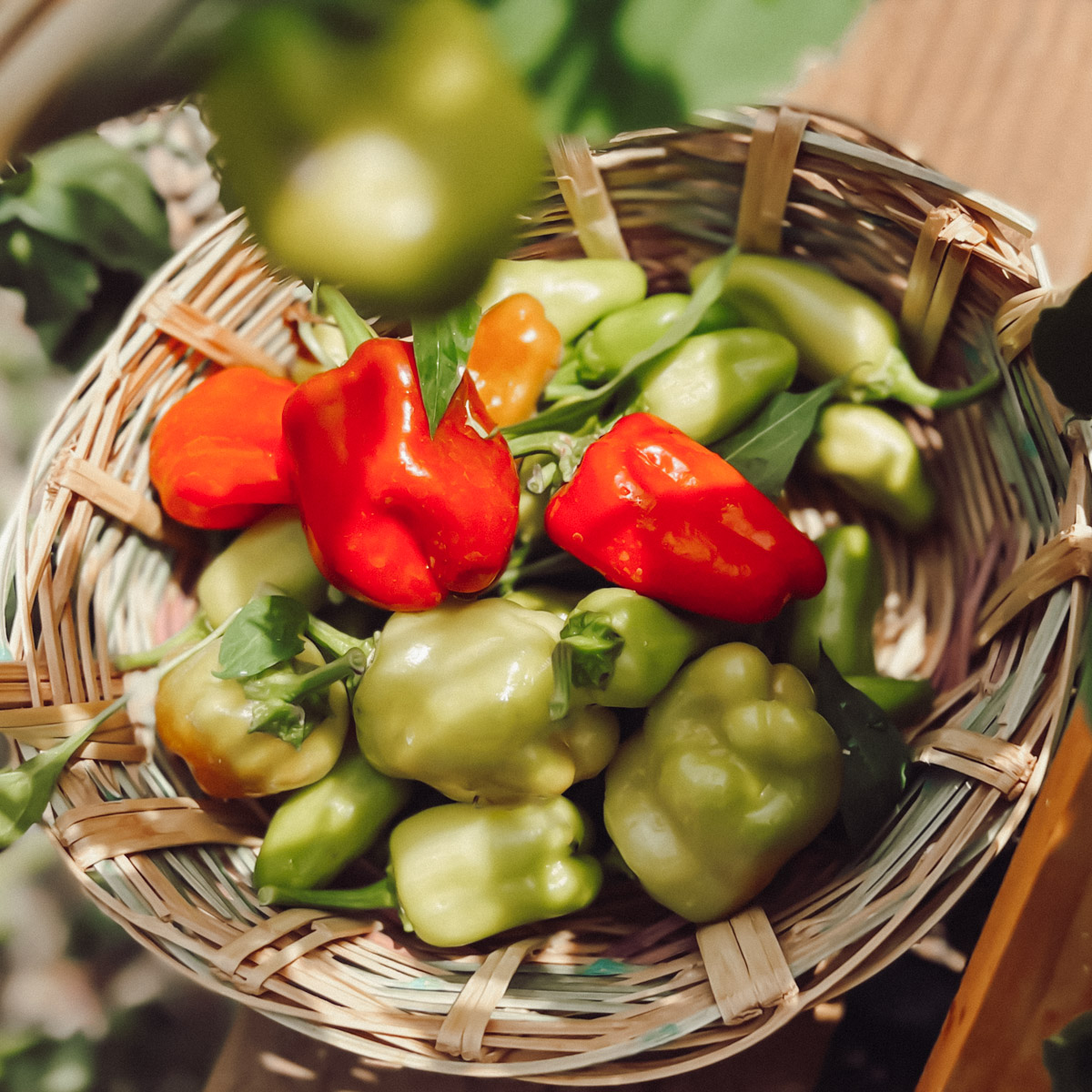Best Fertilizers for Peppers: Maximize Plant Health and Yield
Best Fertilizers for Peppers: Maximize Plant Health and Yield
Blog Article
The Ultimate Overview to Feeding Peppers: Enhancing Development and Taste Normally
As pepper fanatics seek to cultivate durable plants producing tasty fruits, the duty of fertilizing comes to be paramount in attaining these goals. The journey to comprehending the detailed balance of nutrients that peppers need for ideal growth and taste is a nuanced one. By discovering the benefits of all-natural plant foods, unlocking the keys behind pepper plant nutrient needs, and diving into the realm of natural fertilizer choices, a globe of possibilities emerges for boosting the vigor and flavor profile of these precious plants. Stay tuned to uncover the crucial methods and services that can raise your pepper-growing ventures to brand-new heights.
Benefits of Natural Fertilizers
Natural fertilizers provide a variety of advantages that add to the general health and wellness and performance of pepper plants. By enriching the dirt with organic matter, such as garden compost or manure, natural plant foods improve its water retention capacity and nutrient-holding capabilities, producing a more hospitable atmosphere for pepper plants to grow in.
Furthermore, all-natural plant foods support a diverse and active soil microbiome, cultivating useful microbial task that assists in nutrient recycling and uptake by the plants. This microbial task can help suppress harmful virus and diseases, reducing the requirement for chemical interventions. Additionally, all-natural plant foods promote long-lasting soil wellness by maintaining a balanced community underground, which in turn supports the total health and wellness and durability of pepper plants above ground.
Understanding Pepper Plant Nutrient Demands
Having actually developed the advantages of natural fertilizers in boosting soil wellness and promoting microbial activity, the emphasis currently moves to understanding the certain nutrient demands important for optimum growth and flavor in pepper plants.

Recognizing the certain nutrient demands of pepper plants is critical for achieving plentiful harvests with outstanding taste. By giving the best equilibrium of nutrients through organic fertilizers or soil changes, growers can make sure healthy and balanced, strenuous plants that create delicious peppers throughout the growing season.
Organic Plant Food Options for Peppers
In enhancing the growth and taste of pepper plants, selecting the proper natural fertilizers is an important factor to consider. Organic fertilizers provide a natural and lasting means to nourish pepper plants without introducing unsafe chemicals to the dirt and atmosphere.
One more efficient organic fertilizer for peppers is aged manure. Rich in phosphorus, potassium, and nitrogen, aged manure offers a well balanced nutrient mix that supports vigorous development and abundant fruit production (best fertilizers for peppers). It is very important to make use of well-aged manure to stop shedding the plants with excess ammonia
Fish emulsion is a fast-acting organic fertilizer that provides pepper plants with a fast boost of nutrients. Stemmed from fish waste, this plant food is high in nitrogen, making it specifically advantageous throughout the onset of pepper plant development. Fish solution is very easy to apply and is readily soaked up by the plants, advertising healthy foliage and strong origin development.
When selecting an useful link organic fertilizer for peppers, consider the particular nutrient requirements of your plants and decide for choices that straighten with your gardening techniques and worths.
Best Practices for Fertilizing Pepper Plant Kingdoms
Taking into consideration the value of selecting appropriate organic plant foods for pepper plants, carrying out best practices for fertilizing is essential to guarantee optimal growth and taste growth. One of the vital best methods for feeding pepper plants is to conduct a soil examination before using any kind of fertilizers. This test will aid figure out the details nutrient needs of the dirt and guide you in picking the ideal type and quantity of plant food. It is also essential to fertilize pepper plants at the correct time, usually prior to planting and during crucial development phases such as blooming and fruit advancement.
Furthermore, integrating organic matter into the soil via garden compost or mulching can aid boost soil structure, water retention, and nutrition schedule, advertising healthier pepper plants with enhanced taste accounts. By adhering to these finest practices, you can successfully nurture your pepper plants and accomplish bountiful harvests with superior preference and top quality.
Troubleshooting Common Fertilizing Issues

pH discrepancy is another problem that can influence nutrient uptake in pepper plants. Developing a routine fertilization timetable and adhering to advised application rates can help avoid this issue and guarantee healthy pepper plants throughout the expanding period.
Conclusion
By understanding the nutrient needs of pepper plants and selecting natural fertilizer alternatives, gardeners can properly promote strenuous and healthy development. Complying with ideal methods for fertilizing pepper plants and repairing typical fertilizing look what i found concerns can aid guarantee successful cultivation of peppers.
By exploring the advantages of all-natural fertilizers, unlocking the keys behind pepper plant nutrient requires, and diving into the world of organic plant food alternatives, a world of opportunities emerges for boosting the vigor and flavor profile of these cherished plants.Fish solution is a fast-acting natural plant food that supplies pepper plants with a quick increase of nutrients. It is also crucial to fertilize pepper plants at the appropriate time, normally prior to growing and throughout key growth stages such as blooming and fruit growth.
By recognizing the nutrient requirements of pepper plants and choosing natural plant food options, garden enthusiasts can properly promote healthy and balanced and strenuous development. Following ideal techniques for fertilizing pepper plants and fixing common fertilizing problems can aid make certain effective farming of peppers.
Report this page